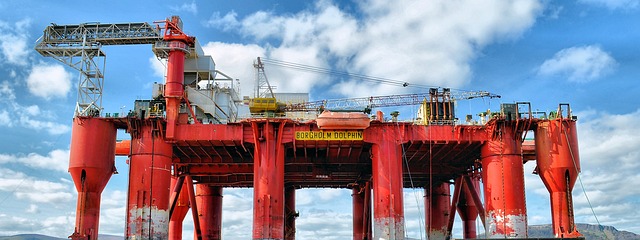Oil Rig Jobs: Your Complete Guide to Offshore Careers
Working on offshore oil platforms represents one of the most challenging yet rewarding career paths in the energy sector. Oil rig jobs offer unique opportunities for individuals seeking high-paying positions with accelerated career advancement potential. These roles typically involve extended periods working on drilling platforms located miles from shore, where teams extract petroleum and natural gas from beneath the ocean floor. The offshore oil industry continues to provide stable employment opportunities worldwide, making it an attractive option for those willing to embrace the demanding lifestyle and technical requirements of maritime petroleum extraction.

How to Start Working on Offshore Platforms
Breaking into offshore work requires specific preparation and understanding of industry requirements. Most entry-level positions welcome candidates without prior experience, though physical fitness and mental resilience are essential. The starting process typically begins with obtaining basic safety certifications, including Basic Offshore Safety Induction and Emergency Training (BOSIET) or similar regional equivalents.
Prospective workers should focus on developing transferable skills from construction, manufacturing, or mechanical trades. Many offshore employers value experience with heavy machinery, welding, electrical systems, or general maintenance work. Educational backgrounds in marine engineering, petroleum technology, or vocational training in relevant trades significantly improve hiring prospects.
The application process usually involves multiple stages: initial online applications, physical fitness assessments, psychological evaluations, and comprehensive background checks. Candidates must pass drug screenings and maintain clean driving records, as safety remains the industry’s top priority.
Oil Rig Jobs: Types and Requirements
The offshore industry offers diverse employment opportunities across multiple skill levels and specializations. Entry-level positions include roustabouts, who perform general maintenance and cleaning duties, and roughnecks, who assist with drilling operations. These roles typically require minimal prior experience but demand physical stamina and willingness to learn technical procedures.
Mid-level positions encompass specialized roles such as derrickmen, who work at elevated heights managing drilling equipment, and motormen, responsible for maintaining engines and mechanical systems. These positions usually require several years of offshore experience and additional technical training.
Senior positions include drillers, who oversee entire drilling operations, toolpushers, who manage daily platform activities, and various engineering specialists. These roles demand extensive experience, advanced certifications, and leadership capabilities. Many companies promote internally, offering clear advancement pathways for dedicated employees.
Offshore Jobs: Working Conditions and Lifestyle
Offshore employment involves unique working arrangements that significantly differ from traditional land-based careers. Most positions operate on rotation schedules, commonly ranging from 14 days on and 14 days off to 28 days on and 28 days off. During work periods, employees live on the platform in shared accommodations, with meals, lodging, and transportation provided by employers.
Work shifts typically last 12 hours, seven days per week during rotation periods. The environment can be physically demanding, with exposure to weather conditions, noise, and potential safety hazards. However, modern platforms feature comprehensive safety systems, recreational facilities, and communication technology to maintain crew welfare.
The extended time off between rotations allows for substantial personal time, making these positions attractive to individuals who value extended periods away from work. Many offshore workers use their rotation schedules to pursue additional education, spend quality time with family, or engage in personal projects.
Salary Expectations and Career Investment
Offshore positions typically offer competitive compensation packages that reflect the demanding nature and specialized skills required. Entry-level roles generally provide starting salaries ranging from $45,000 to $65,000 annually, while experienced professionals can earn between $80,000 and $150,000 per year. Senior positions and specialized technical roles may command salaries exceeding $200,000 annually.
| Position Level | Experience Required | Salary Range (Annual) |
|---|---|---|
| Entry-Level (Roustabout/Roughneck) | 0-2 years | $45,000 - $65,000 |
| Mid-Level (Derrickman/Motorman) | 2-5 years | $65,000 - $95,000 |
| Experienced (Driller/Supervisor) | 5+ years | $95,000 - $150,000 |
| Senior/Specialist Roles | 10+ years | $150,000 - $250,000+ |
Prices, rates, or cost estimates mentioned in this article are based on the latest available information but may change over time. Independent research is advised before making financial decisions.
Safety Training and Certifications
Safety represents the cornerstone of offshore operations, requiring comprehensive training before beginning work. Essential certifications include survival training for helicopter transportation, firefighting techniques, first aid certification, and specific offshore safety protocols. These training programs typically cost between $2,000 and $5,000, though many employers reimburse training expenses or provide in-house certification programs.
Additional specialized certifications may be required based on specific job roles, including crane operation, confined space entry, or hazardous materials handling. Maintaining current certifications requires periodic renewal and ongoing education throughout offshore careers.
The investment in proper training and certification pays dividends through improved safety awareness, enhanced job prospects, and potential salary premiums for certified professionals. Many training centers offer financing options or payment plans to make certification more accessible to new entrants.
Oil rig jobs continue providing valuable career opportunities for individuals seeking challenging, well-compensated work in the energy sector. Success in offshore roles requires dedication, physical fitness, and commitment to safety protocols. With proper preparation, training, and realistic expectations about the demanding lifestyle, offshore careers can offer financial stability, rapid advancement, and unique professional experiences unavailable in traditional land-based employment.




